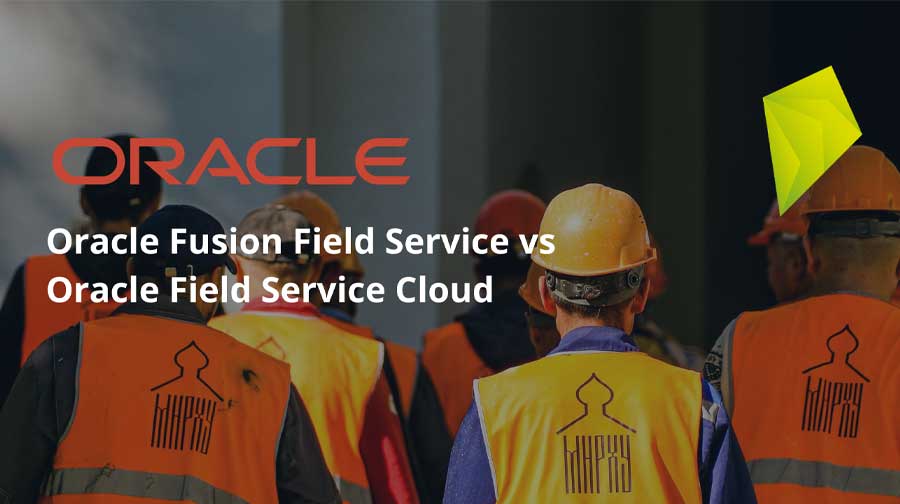Oracle Fusion Field Service vs. Oracle Field Service Cloud: What’s Really Changed?

So, what’s the difference? Is it just a rebrand — or something bigger?
Here’s a quick breakdown:
1. From Standalone to Integrated
Oracle Field Service (OFS) has been a powerful, standalone solution for managing scheduling, dispatch, and mobile workforces. While it also worked seamlessly with other Oracle Fusion products such as Fusion Service, Maintenance Cloud and HCM through Oracle’s standard adapters, there was still an effort needed to get it all configured and working alongside other upstream Fusion applications.
Oracle Fusion Field Service (OFFS) is its evolution with progressive features built natively inside the Oracle Fusion Applications suite so that it becomes more tightly integrated with the core Fusion Stack of applications. It should work seamlessly with ERP, SCM, and CX leveraging the ethos of One identity and one data model.
2. Unified Configuration & Security
OFFS is now tightly integrated to be part of the Oracle Fusion Applications family. This means that you get standardized application configuration and setup experience across all the Oracle Fusion Applications that you implement. OFFS uses the same user roles, permissions, and admin setup as the rest of your Oracle suite. This means that if you’re using Fusion applications such as HCM/ERP or other CX modules then initial setup details such as users and user roles created already created within those Fusion Application can be easily shared where needed and no extra/redundant setups are needed at the field service side. i.e. No more separate logins or duplicate user management.
If OFFS is the first Oracle Fusion footprint for the client, then a subscription to OFFS would give them the opportunity to setup company profile setups such as Enterprise HCM Information, Legal Address, Legal entity, locations and Business Units. In addition, the default mapping service will be HERE maps.
3. Licensing, Roadmap & Product Direction
Oracle has also simplified its licensing with Oracle Fusion Field Services. There are no more 2 SKUs such as Enterprise and Professional. There is just one SKU (Part# B110413) which basically gives all the features of the erstwhile OFS Enterprise license under a pooled named user basis. While the upside is the client gets all the feature set in a single SKU, unlike the previous SKUs for Field Services, they now get only 2 instances (One Prod and One Test), in line with other Fusion applications.
Fusion Field Service will also be the strategic future and Oracle Field service SKU will not be offered anymore for new implementations/clients. Oracle have also indicated that existing customers won’t be forced to make the shift to the new SKU. OFS isn’t disappearing overnight, but new innovation and deep integrations will centre around the Fusion version will continue with the same lifecycle and update cadence.
Migration Notes
While Oracle has hinted (via official migration discussions) that customers will be able to move from OFS to Fusion Field Service with supported tools — and in some cases, no extra license cost, still, every migration means revisiting workflows, roles, and integrations.
Takeaway
This isn’t just a new name — it’s a strategic shift.
Oracle Fusion Field Service brings field service into the same ecosystem as ERP, CX, and SCM — creating one cohesive experience across your enterprise cloud.
If you’re already in the Fusion world, this is the direction to watch.